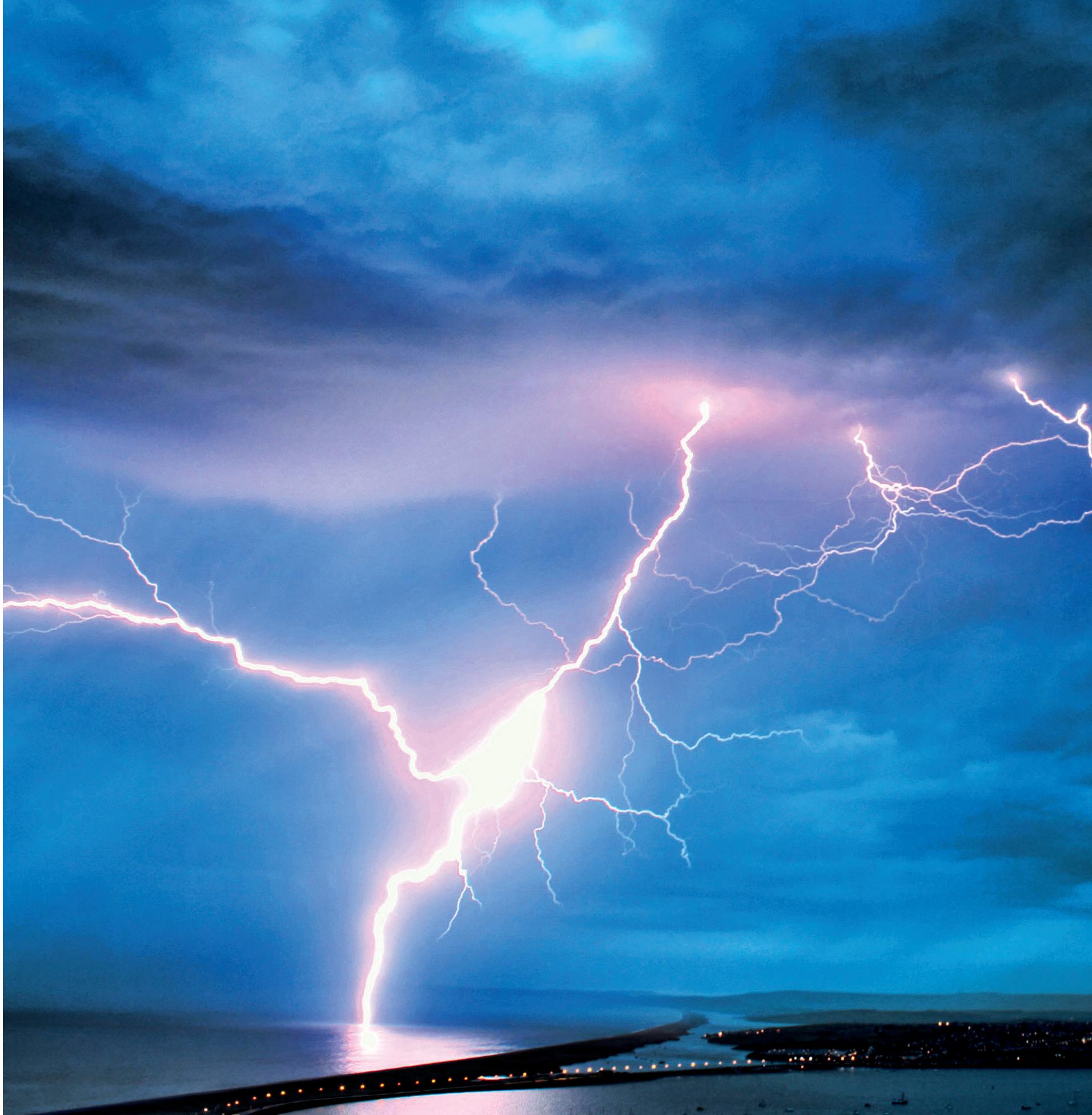
In the early 20th century, Serbian inventor Nikola Tesla dreamed of pulling limitless free electricity from the air. He was thinking on a vast scale, effectively looking at the Earth and upper atmosphere as two ends of a giant battery. His dreams were never realised, but the promise of air derived electricity - hygroelectricity - is capturing researchers' imaginations again. The difference: they're not thinking big, but very, very small.
In May, a team at the University of Massachusetts (UMass) Amherst published a paper declaring it had successfully generated a small but continuous electric current from humidity in the air. It's a claim that will probably raise a few eyebrows, and when the team made the discovery that inspired this new research in 2018, it did.
"To be frank, it was an accident," said the study's lead author, Prof Jun Yao. "We were actually interested in making a simple sensor for humidity in the air. But the student who was working on that forgot to plug in the power."
The UMass Amherst researchers were surprised to find that the device, which comprised an array of microscopic tubes, or nanowires, was producing an electrical signal regardless.
Each nanowire was less than one-thousandth the diameter of a human hair, wide enough that an airborne water molecule could enter, but so narrow it would bump around inside the tube. Each bump, the team realised, lent the material a small charge, and as the frequency of bumps increased, one end of the tube became differently charged from the other.
"So it's really like a battery," said Yao. "You have a positive pull and a negative pull, and when you connect them the charge is going to flow."
Denne historien er fra July 07, 2023-utgaven av The Guardian Weekly.
Start din 7-dagers gratis prøveperiode på Magzter GOLD for å få tilgang til tusenvis av utvalgte premiumhistorier og 9000+ magasiner og aviser.
Allerede abonnent ? Logg på
Denne historien er fra July 07, 2023-utgaven av The Guardian Weekly.
Start din 7-dagers gratis prøveperiode på Magzter GOLD for å få tilgang til tusenvis av utvalgte premiumhistorier og 9000+ magasiner og aviser.
Allerede abonnent? Logg på

We're making a music video-but I can't play, or even act
I am in a lifeboat station on the south coast, standing beneath the stern of a rescue vessel, wearing a borrowed fisherman's jumper and holding a banjo. There are lights on me, and I am very much at sea.

BOOKS OF THE MONTH
The best translated fiction

Village people A chilly tone of doom infects these unsettling folk tales, following a settlement from the deep past to near future
The quintessential \"bad place\" is one of the staples of horror fiction. For Stephen King, the bad place - think the Overlook Hotel in The Shining - usually acts as a repository for a long-forgotten evil or injustice to resurface.

A labour of love Haruki Murakami revisits a hypnotic city of dreams and a tale of teen sweethearts, in material he's worked on over four decades
The elegiac quality of Haruki Murakami's new novel, his first in six years, was perhaps inevitable considering its origins. The City and Its Uncertain Walls began as an attempt to rework a 1980 story of the same title, originally published in the Japanese magazine Bungakukai, which Murakami, unsatisfied, never allowed to be republished or translated.

Leading questions The former German chancellor slights her enemies by barely mentioning them-and is frustratingly opaque on her own big calls
Towards the end of her 16-year tenure, former German chancellor Angela Merkel was garlanded with superlative titles: the \"queen of Europe\", the \"most powerful woman in the world\".

Double vision
Is the pay really that good? Do you get bored? We ask 'David Brent', 'Nessa' and 'Ali G' what it's like to make money as the lookalike of a comic creation

Robopop Teen star who does not exist
Miku is a 'Vocaloid' -a holographic avatar that represents a digital bank of vocal samples-performing sellout tours for thousands of very real mega-fans

The show must go wrong
How did a farce about a gaffe-filled amateur dramatic whodunnit become one of Britain's greatest ever exports, the toast of dozens of countries?

Europe's latest radical populist typifies a swing on the continent
Politics in Romania can be a bloody business, especially on the right. The excesses of the Iron Guard, an insurrectionary, violently antisemitic, ultranationalist 1930s political-religious militia, stood out even at a time when fascist parties were wreaking havoc in Germany, Italy and Spain. Given what is happening in Europe today, the events of that period are instructive.

It's high time to tax cannabis and fix French finances
France might not be broke, but the state of its public finances is, well, definitely not good. Total debt stands at €3.2tn ($3.4tn) - 112% of GDP. Interest payments on that debt are the second largest public expenditure after education (which includes everything from crêche, or preschool, to universities) and are higher than the amount spent on defence. And this year's budget deficit is projected to be 6%, three points above the EU's 3% limit.